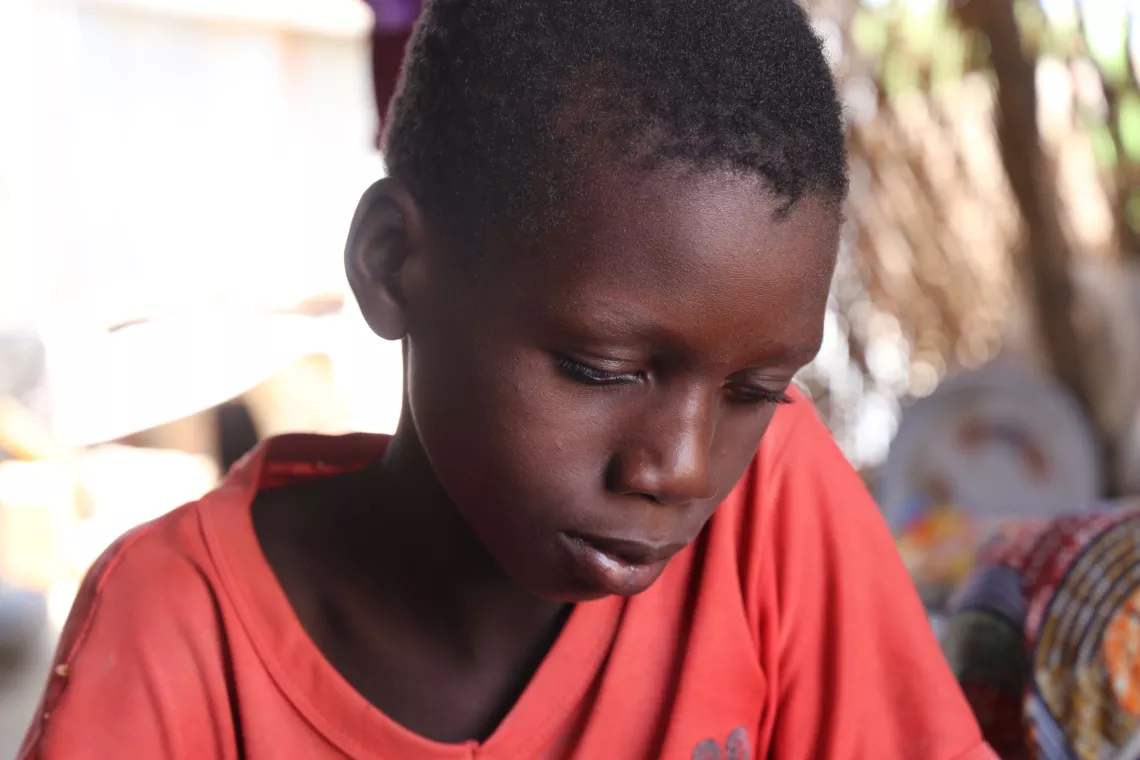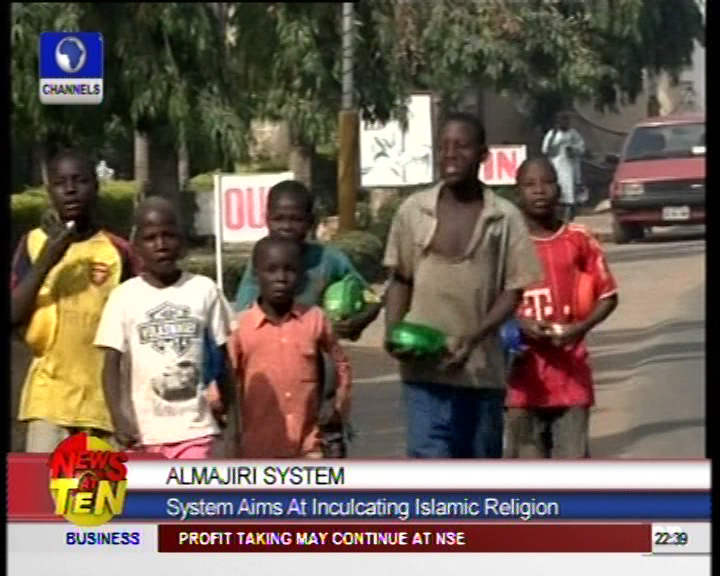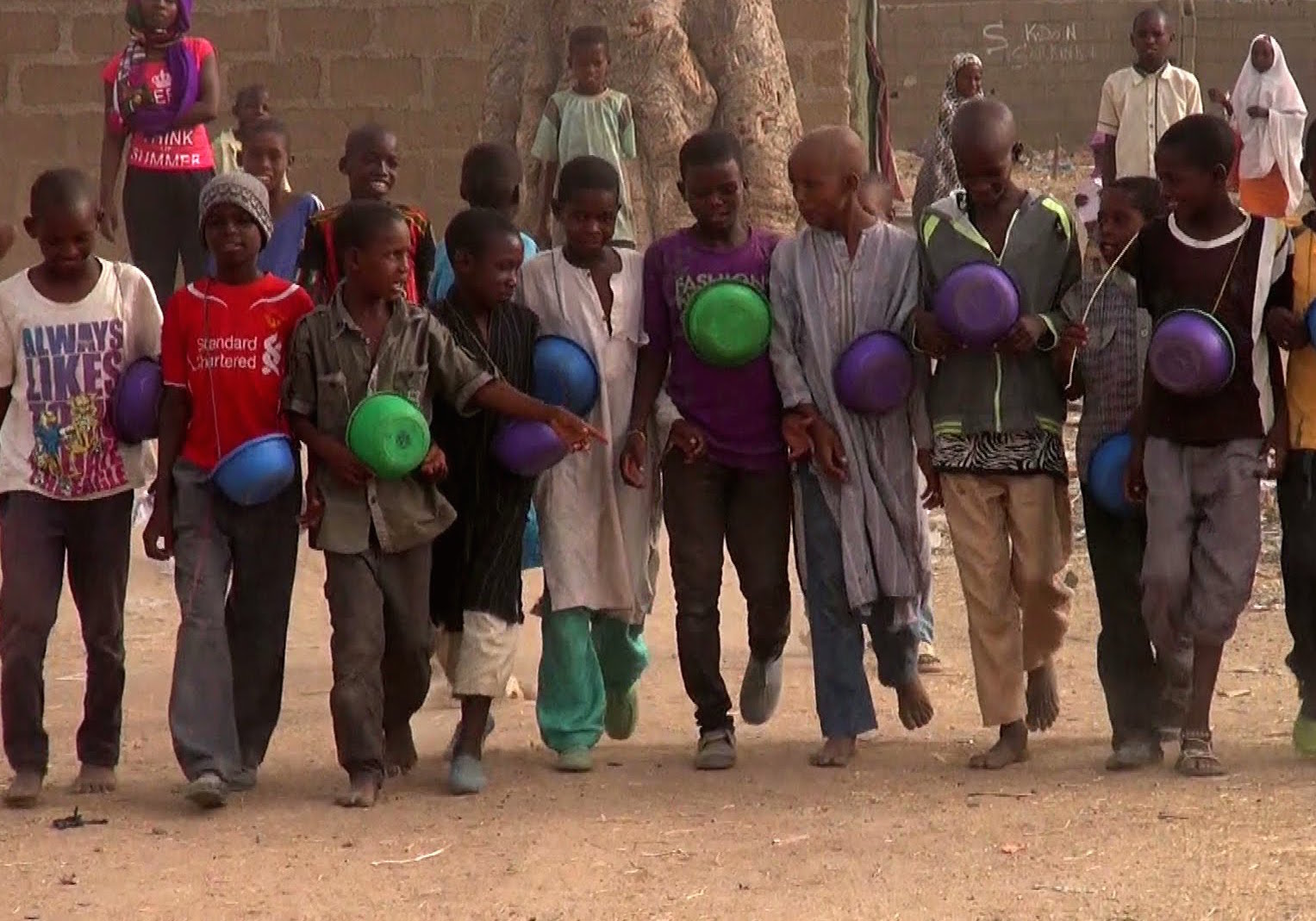MK254
JF-Expert Member
- May 11, 2013
- 31,654
- 48,432
Wazazi maskini kule Nigeria kazi yao ni kuzaa na kupokeza watoto kwa huu mfumo wa almajiri ambapo mtoto siku nzima anafundishwa kurani na mambo ya kiislamu kisha mchana anaachiwa aende akazurure kuomba omba chakula au chochote, wengine wanakula majalalani.



=========================
Thirteen-year-old Abdulkarim’s typical day as an Almajiri started at 4.30 a.m. with prayers and a Qur’anic recitation, and ended at 10 p.m. with another Qur’anic recitation. In between, there were three slots in his schedule for begging. In a typical day, begging took up a full six hours.
“We would go to beg at 6 a.m. and return at 7 a.m. We would go out again at 11 a.m. and return for prayers at 2 p.m. Finally, between 6 p.m. and 8 p.m., we were back on the streets again, begging,” Abdulkarim said, sitting under a tree in his village in Mafa, Borno State.
He and 30 other children had just been returned to Borno from Gombe State, where they had been living for several years as Almajirai.
Under the Almajiri system, parents send their children, mostly boys aged 4-12, to distant locations to acquire Qur’anic education. Many rural and poor families who can’t afford formal schooling have made this choice. It is difficult to know the number of Almajiri children in Nigeria, but some estimates put it at about 10 million, or about 81 per cent of the more than 10 million out-of-school children in the country.
While parents may believe they are fulfilling their obligation to provide a religious and moral education to their children and that the learning is provided free of charge, Almajiri children are often forced by their teachers (Mallams) to beg in the streets to fund their education.
While Abdulkarim appears calm and at peace with himself, in the Mahadiya village of Yobe State, Abdusalim, 12, is ill at ease. He has spent half his life as an Almajiri and is struggling to adjust to a life where begging is not part of his daily routine. He is one of 371 children returned to Yobe from other parts of northern Nigeria and has spent longer than his peers as an Almajiri.
In the wake of the COVID-19 pandemic, state governments in northern Nigeria banned the Almajiri system as a measure to limit the spread of the coronavirus, returning many children within the system to their families and communities of origin.
Abdusalim arrived home and reunited with his family in Yobe State while Abdulkarim was welcomed home by his grateful mother.
UNICEF has supported the return of these children and their successful reunion with their families.
“UNICEF made sure that health, nutrition, water, hygiene and sanitation services were available in the temporary shelters the government provided,” said Miatta Abdulai, UNICEF’s Child Protection Specialist in Maiduguri. “We also provided the children with safe psychosocial, recreational and life skills training as the first steps towards their reintegration into their communities, outside the Almajiri system.”
“We put in place community monitoring mechanisms to ensure these children remain with their families and do not return to life as Almajirai,” said Abdulai.
When asked the delicate question of whether the desire for a religious education was the sole reason for sending her son away, Abdusalim’s mother Hadiza admitted other factors were part of the decision. “It is very difficult to provide for 12 children,” she said.
Aisha Uma, Abdulkarim’s mother, cited security concerns, the context of the 10-year armed conflict in north-east Nigeria that has seen so many children displaced, abducted or killed. “The conflict led us to send him to Gombe“ she said. “Prior to the security problems in the state, he was attending formal school and also Sangaya (Islamic school) in Mafa.”
Both children are home and happy to be reunited with their families, and say they never enjoyed being Almajirai.
“I don’t miss it at all. Life as an Almajiri was very tough,” said Abdulkarim. “I had to fend for myself, watch over myself, be my own security, and beg to support myself. I never enjoyed being an Almajiri because the system exposes one to so many dangers and it is very difficult.”
What happens to these children in their life outside the Almajiri system will determine their next move. Currently, they have big dreams.
“I want to read the Quran, go to formal school and become a businessman,” said Abdulsalim. Abdulkarim hopes to go back to school and farm in his spare time. “I see myself owning big businesses and providing mentorship support to younger ones in my community,” he said.

 www.unicef.org
www.unicef.org


=========================
Thirteen-year-old Abdulkarim’s typical day as an Almajiri started at 4.30 a.m. with prayers and a Qur’anic recitation, and ended at 10 p.m. with another Qur’anic recitation. In between, there were three slots in his schedule for begging. In a typical day, begging took up a full six hours.
“We would go to beg at 6 a.m. and return at 7 a.m. We would go out again at 11 a.m. and return for prayers at 2 p.m. Finally, between 6 p.m. and 8 p.m., we were back on the streets again, begging,” Abdulkarim said, sitting under a tree in his village in Mafa, Borno State.
He and 30 other children had just been returned to Borno from Gombe State, where they had been living for several years as Almajirai.
Under the Almajiri system, parents send their children, mostly boys aged 4-12, to distant locations to acquire Qur’anic education. Many rural and poor families who can’t afford formal schooling have made this choice. It is difficult to know the number of Almajiri children in Nigeria, but some estimates put it at about 10 million, or about 81 per cent of the more than 10 million out-of-school children in the country.
While parents may believe they are fulfilling their obligation to provide a religious and moral education to their children and that the learning is provided free of charge, Almajiri children are often forced by their teachers (Mallams) to beg in the streets to fund their education.
While Abdulkarim appears calm and at peace with himself, in the Mahadiya village of Yobe State, Abdusalim, 12, is ill at ease. He has spent half his life as an Almajiri and is struggling to adjust to a life where begging is not part of his daily routine. He is one of 371 children returned to Yobe from other parts of northern Nigeria and has spent longer than his peers as an Almajiri.
In the wake of the COVID-19 pandemic, state governments in northern Nigeria banned the Almajiri system as a measure to limit the spread of the coronavirus, returning many children within the system to their families and communities of origin.
Abdusalim arrived home and reunited with his family in Yobe State while Abdulkarim was welcomed home by his grateful mother.
UNICEF has supported the return of these children and their successful reunion with their families.
“UNICEF made sure that health, nutrition, water, hygiene and sanitation services were available in the temporary shelters the government provided,” said Miatta Abdulai, UNICEF’s Child Protection Specialist in Maiduguri. “We also provided the children with safe psychosocial, recreational and life skills training as the first steps towards their reintegration into their communities, outside the Almajiri system.”
“We put in place community monitoring mechanisms to ensure these children remain with their families and do not return to life as Almajirai,” said Abdulai.
When asked the delicate question of whether the desire for a religious education was the sole reason for sending her son away, Abdusalim’s mother Hadiza admitted other factors were part of the decision. “It is very difficult to provide for 12 children,” she said.
Aisha Uma, Abdulkarim’s mother, cited security concerns, the context of the 10-year armed conflict in north-east Nigeria that has seen so many children displaced, abducted or killed. “The conflict led us to send him to Gombe“ she said. “Prior to the security problems in the state, he was attending formal school and also Sangaya (Islamic school) in Mafa.”
Both children are home and happy to be reunited with their families, and say they never enjoyed being Almajirai.
“I don’t miss it at all. Life as an Almajiri was very tough,” said Abdulkarim. “I had to fend for myself, watch over myself, be my own security, and beg to support myself. I never enjoyed being an Almajiri because the system exposes one to so many dangers and it is very difficult.”
What happens to these children in their life outside the Almajiri system will determine their next move. Currently, they have big dreams.
“I want to read the Quran, go to formal school and become a businessman,” said Abdulsalim. Abdulkarim hopes to go back to school and farm in his spare time. “I see myself owning big businesses and providing mentorship support to younger ones in my community,” he said.

Children adjust to life outside Nigeria’s Almajiri system
UNICEF is supporting the return of children who have left the Almajiri system and their successful reunion with their families
